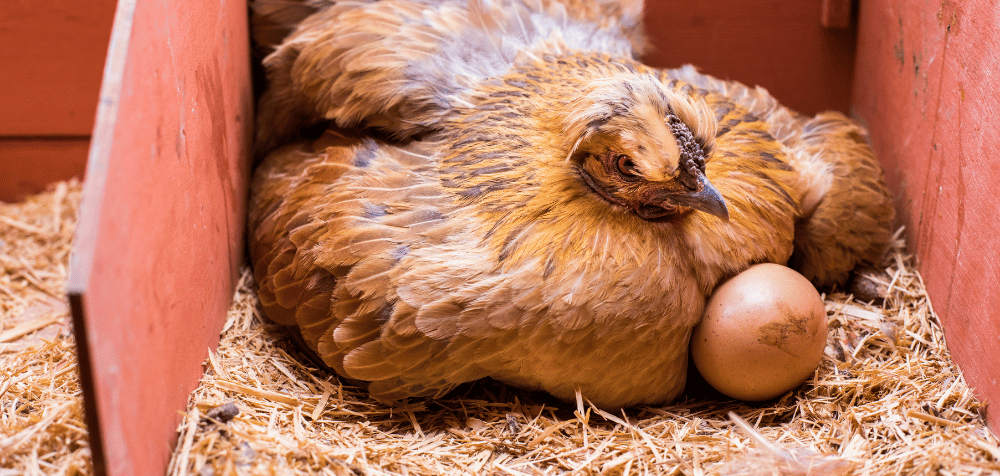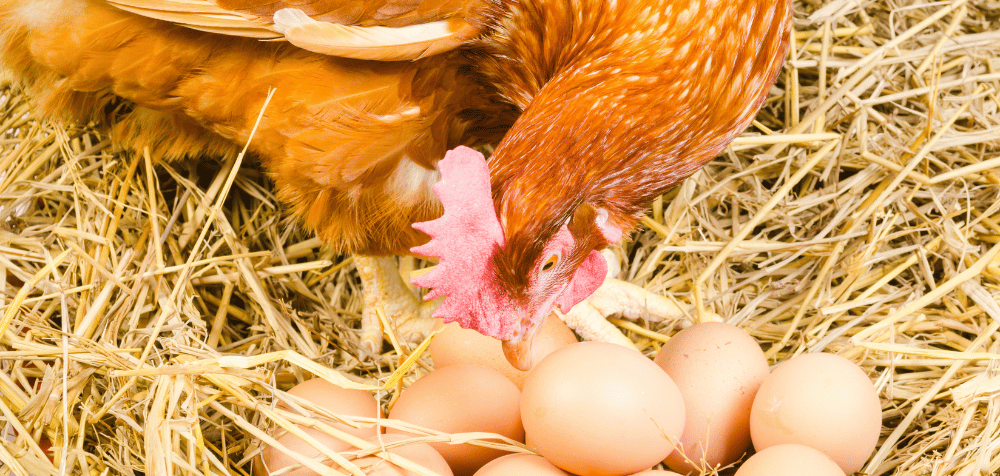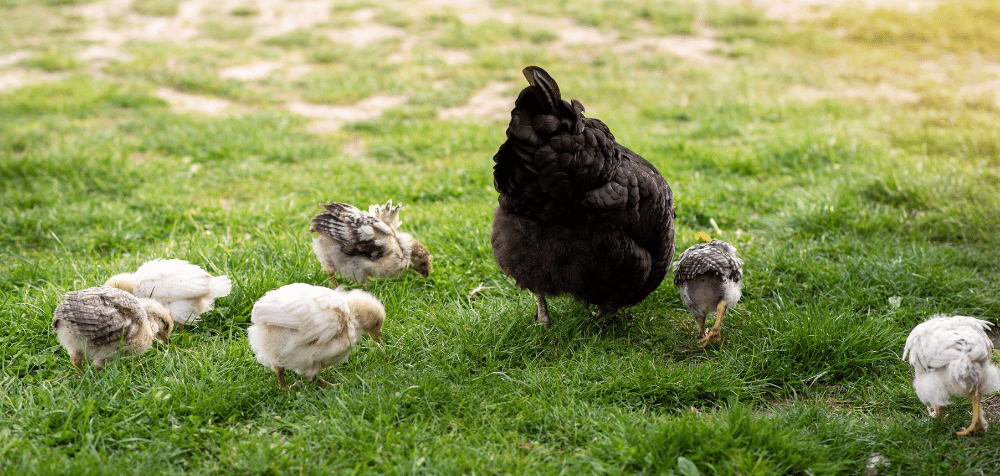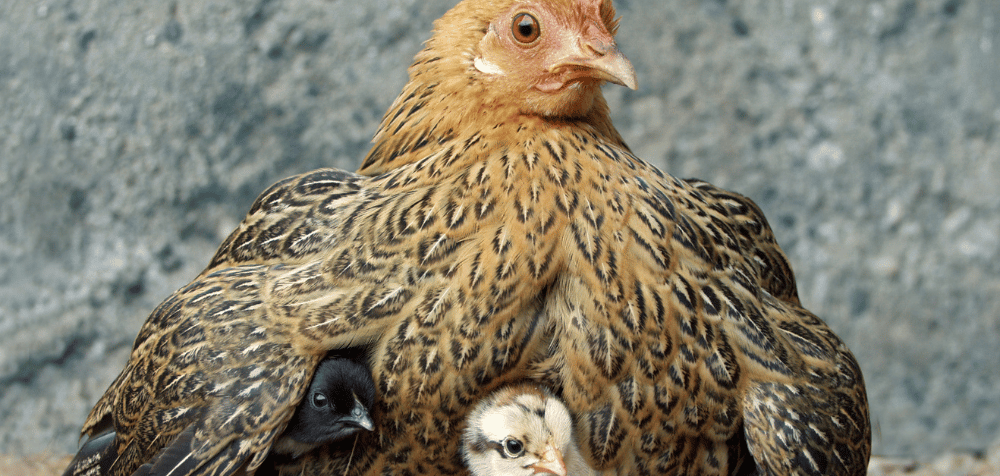If you have chickens, sooner or later, you’ll likely encounter a broody hen. Broody hens are hens that have decided it’s time to sit on their eggs and hatch chicks, whether or not the eggs are fertilized.
In this blog, I’ll explain how to care for broody hens and their eggs, ensuring both the hen and her future chicks are happy and healthy.
What Exactly Are Broody Hens?
Before diving into the care process, let’s talk about what makes a hen broody. A broody hen is one whose maternal instincts kick in, causing her to sit on a nest of eggs and attempt to hatch them. You’ll notice a few tell-tale signs that your hen has gone broody:
- She stays in the nesting box all day and night.
- She fluffs up her feathers when approached.
- She may become more aggressive, pecking or squawking at you if you try to remove her from the nest.
- She may stop laying eggs altogether.
Broody hens can be a bit tricky to deal with, especially if you’re not prepared. But with the right care and attention, they can successfully raise chicks.
Setting Up the Perfect Nest For Your Broody Hens

Once your hen has gone broody, she’ll need a suitable space to brood and hatch her eggs. Here’s how to create the ideal environment:
1. Separate Nesting Area
Broody hens should be separated from the rest of the flock to avoid disruptions. You can move her to a quiet, private area with a nesting box where she can sit undisturbed. It’s essential that the space is safe from predators and has minimal foot traffic.
2. The Right Nesting Material
Provide your broody hen with soft bedding, such as straw or wood shavings, to cushion the eggs and keep them warm. The nest should be cozy but not too deep, as deep nests could cause the eggs to get buried and not receive enough heat from the hen.
3. Fresh and Fertile Eggs
Make sure the eggs under your broody hen are fertile if you expect chicks. If you’re unsure, you can buy fertilized eggs from a local farm or hatchery. Alternatively, you can check if the eggs in your flock are fertile by candling them after a few days of incubation.
Taking Care Of Broody Hens
Caring for broody hens goes beyond just providing a safe place to nest. They also need special attention to their health and well-being during this time.
1. Ensure She Eats and Drinks
Broody hens are so focused on incubating their eggs that they sometimes neglect to eat and drink enough. It’s crucial to make sure food and water are easily accessible. Some hens will only leave the nest once a day for a quick break to eat, drink, and relieve themselves.
- Tip: Place food and water close to her nest but not inside it. This encourages her to take necessary breaks without being away from the eggs for too long.
2. Monitor Her Health
Check your broody hen daily for signs of illness or stress. Because she’s sitting for extended periods, she’s at risk of developing conditions like mites or lice. Keep the nesting area clean and free of pests. If she looks lethargic or is losing weight, consider taking her to a vet for advice.
3. Handling Aggression
Broody hens can become quite defensive. If you need to handle her eggs, be gentle and wear gloves if necessary.
Always approach her calmly to avoid causing stress. If she’s especially aggressive, wait until she leaves the nest for her daily break before checking the eggs.
Caring For The Eggs Under Broody Hens

The eggs themselves need to be treated with care to ensure successful hatching. Here are some essential steps to ensure proper egg care:
1. Egg Rotation (If Necessary)
Normally, the broody hen will rotate her eggs herself to ensure even incubation. However, if she has a large number of eggs under her, some may not receive equal heat distribution. In such cases, gently turning the eggs can help ensure all of them get the warmth they need.
2. Candling the Eggs
After about 7-10 days of incubation, you can candle the eggs to check for development. This process involves shining a light through the egg to see if there’s a growing embryo inside. This is a great way to remove any non-fertile eggs from the nest and focus on those that have a chance of hatching.
3. Maintaining Proper Humidity
For the eggs to develop properly, the environment needs to have the right level of humidity. You can ensure this by slightly misting the eggs or placing a shallow dish of water nearby to keep the air moist. Just be careful not to soak the eggs themselves, as that can damage them.
What to Expect as Hatching Day Approaches
As the 21-day incubation period comes to an end, you’ll notice the hen becoming even more protective and possibly fussing with the eggs more frequently. Here’s what to look for as the big day approaches:
- Peeping from inside the eggs: A sign that chicks are getting ready to hatch.
- The hen adjusting her position frequently: This is to help the chicks break through the shells.
- Small cracks or pips in the eggs: Chicks will start to break through the eggshell before hatching fully.
At this point, it’s best to leave the hen and her eggs undisturbed. Once the chicks start hatching, they’ll be fragile, and the mother hen will usually handle everything.
What to Do After the Chicks Hatch

Once the chicks have successfully hatched, congratulations! However, your job as a caretaker isn’t quite over yet. Here’s what you’ll need to do:
- Provide a Safe Space for the Hen and Chicks: The nesting area should remain safe and secluded for the first few days of the chicks’ life. Keep other flock members away for a while to avoid any accidental harm.
- Food and Water for Chicks: Make sure there’s chick feed and fresh water accessible to the newborns. The mother hen will show them how to eat and drink.
- Monitor the Mother Hen’s Behavior: In most cases, the broody hen will transition to a mothering role smoothly. She’ll guide the chicks around, teaching them how to forage and drink. However, keep an eye out for any signs of aggression toward the chicks or neglect.
Wrapping It Up
Caring for broody hens and their eggs is an exciting, albeit sometimes stressful, experience. From setting up a cozy nest to monitoring the health of your broody hen and her eggs, there’s a lot to keep in mind.
With the right care, patience, and attention to detail, you’ll soon have a batch of fluffy chicks running around your coop in no time!

